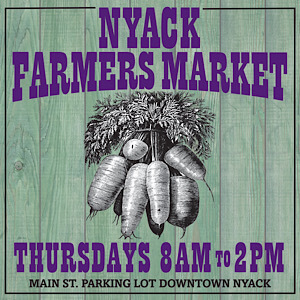Marydell Faith and Life Center in Upper Nyack provided summer camps for inner-city kids during and after the Depression, offering them fresh air, nature, education, and religious experiences. In 1937, over a hundred children, along with mothers and working girls, got the chance to spend at least a week in the countryside. The camp needed fresh milk for the kids and resident sisters, but they lacked a barn. To solve this, they turned to a Sears kit barn from the Sears, Roebuck, and Co. catalog.
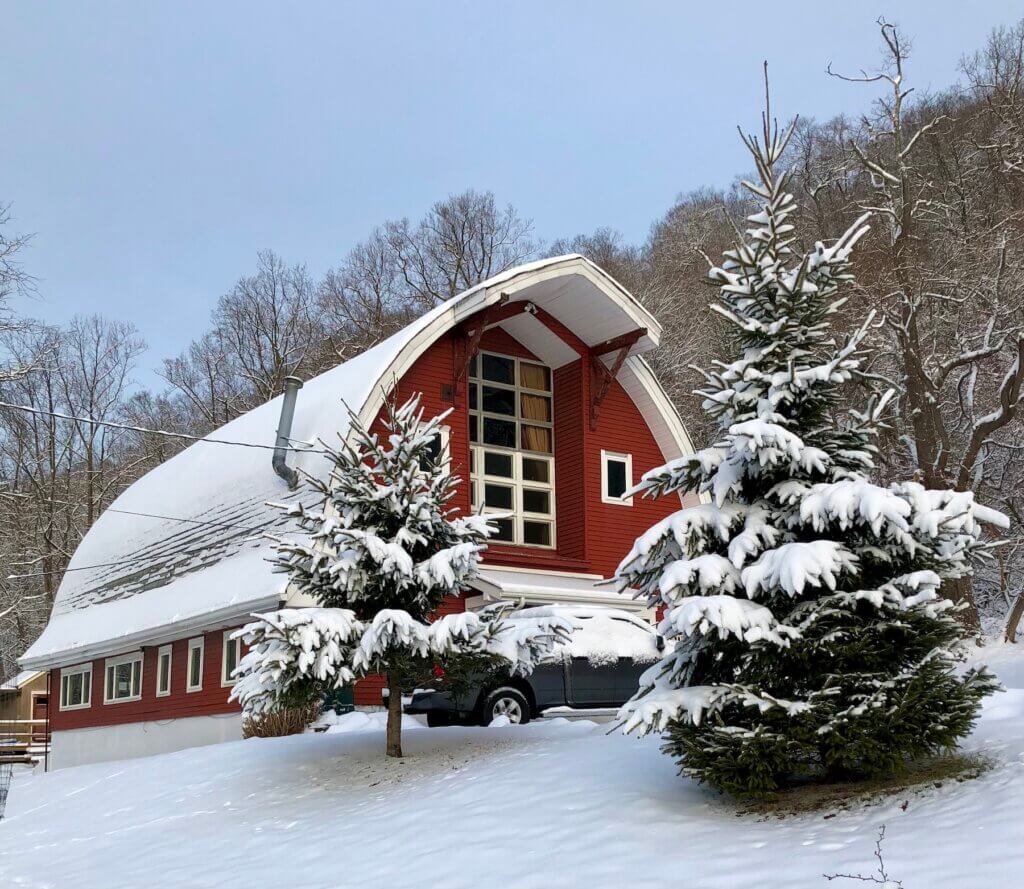
Sears Kit Barns
Sears was the Amazon or Ikea of its time, offering mail-order kit homes starting in 1908. By 1911, they introduced kit barns, offering various styles in their catalogs. However, it wasn’t until 1918 that these barns were pre-cut. Sears’ 1919 catalog featured 27 different barn styles, including gambrel, gabled, gothic, and octagonal options. Eventually, they narrowed the selection down to 18 popular styles by 1929. Other companies like Montgomery Ward and Gordon-Van Tine also sold kit barns, but none matched Sears’ success. Unfortunately, the Depression led to a decline in housing and barn starts, causing kit barns to disappear by WWII.
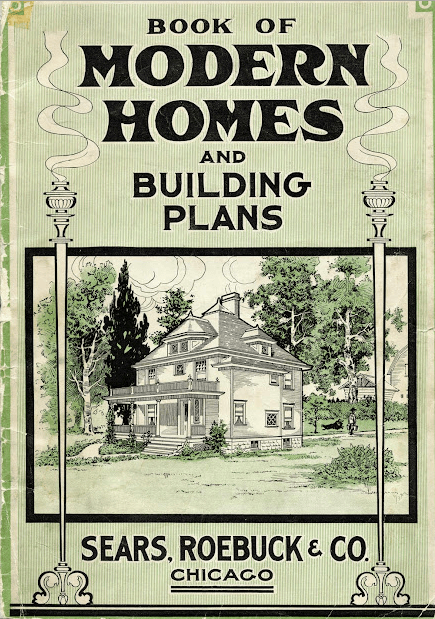
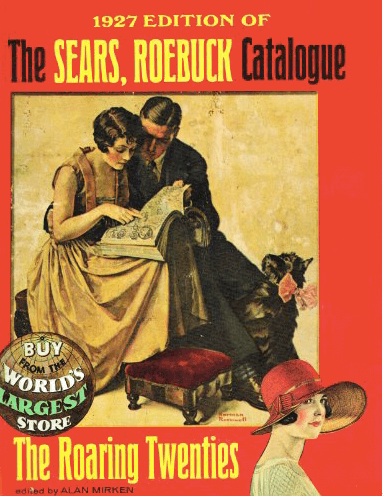
Pre-cut barns were popular due to substantial cost savings—up to 50%. Sears bought lumber in bulk, minimizing waste, and reducing costs. They were shipped by railroad, with a typical barn requiring about four or five railroad cars. The kits included all building elements except the foundation, with numbered parts, detailed plans, and even paint color choices.
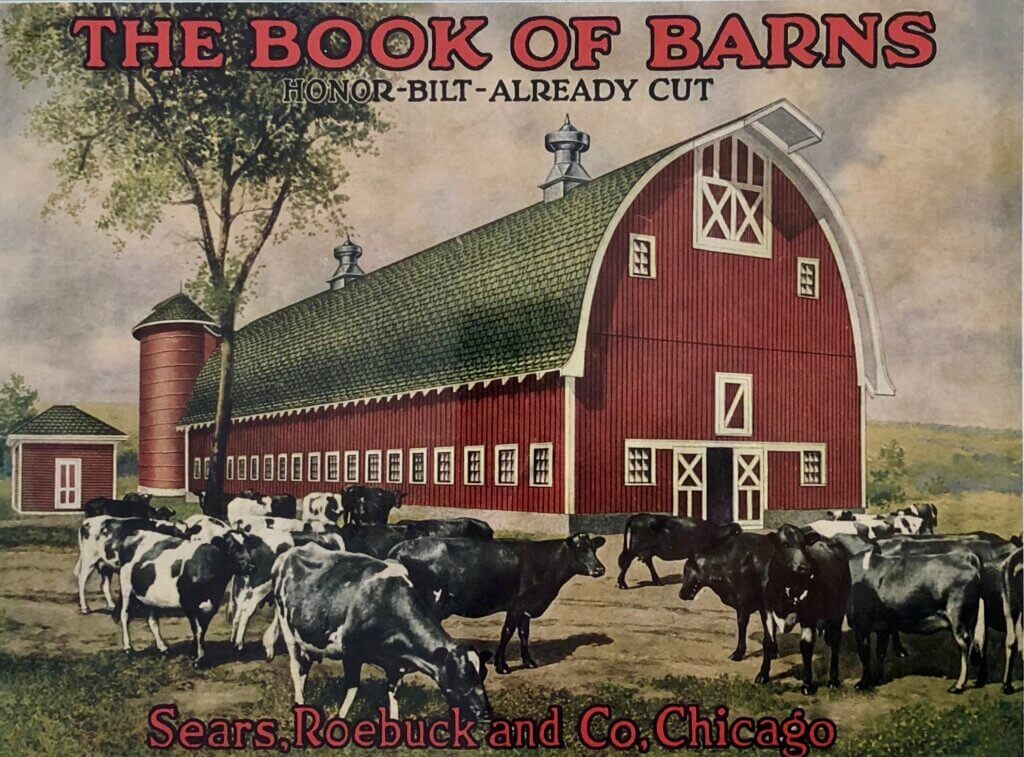
Save-A-Life-Farm
The Sisters of Our Lady of Christian Doctrine, established in 1910 on the Lower East Side of Manhattan, sought open land so that inner city children could experience nature firsthand. John Whalen, a multimillionaire New York lawyer, banker, and ex-president of the New York Giants provided an answer. Whalen acquired a magnificent 70-acre riverside estate known as Larchdell at the very northern edge of Upper Nyack. In 1924 he transferred title to the sisters.
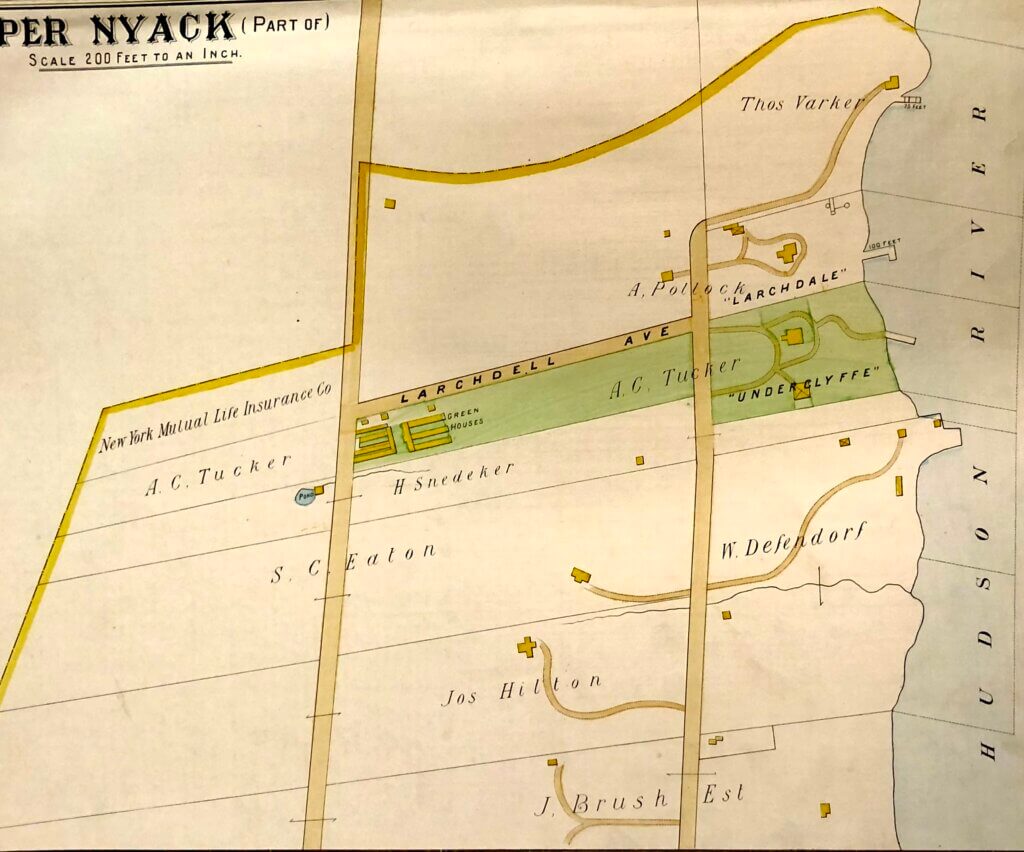
Named Marydell by the sisters, they turned the estate house on North Broadway into their convent house. Around the same time, the sisters established Save-A-Life-Farm on the property west of North Broadway. Through hard work, Marydell became self-sufficient. Yet, they lacked a barn for milk cows.
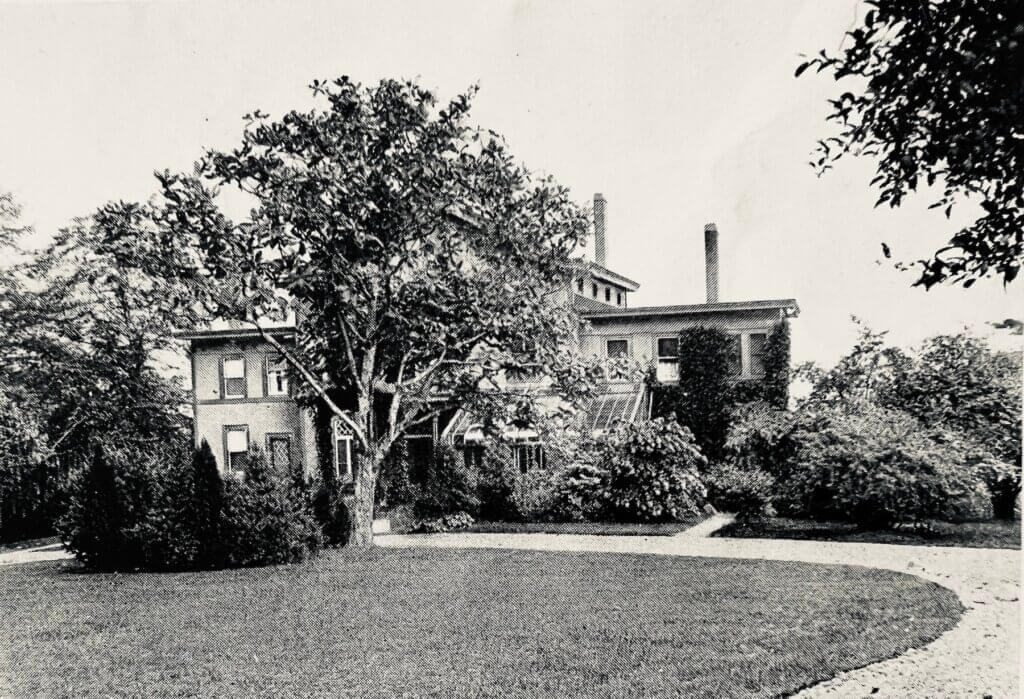
Marydell’s Sears Kit Barn Raising
To solve the problem of a barn, the sisters sought the most frugal course, ordering a 30 x 50 ft. gothic style barn from Sears catalog. Named the Cyclone by Sears, the barn kit contained everything including pre-cut lumber, shingles, nails, bolts, windows, and trusses.The barn arrived on several rail cars at the Nyack train station. To raise the barn, unemployed men from the Lower East Side settlement house answered a call for work and helped build the barn.
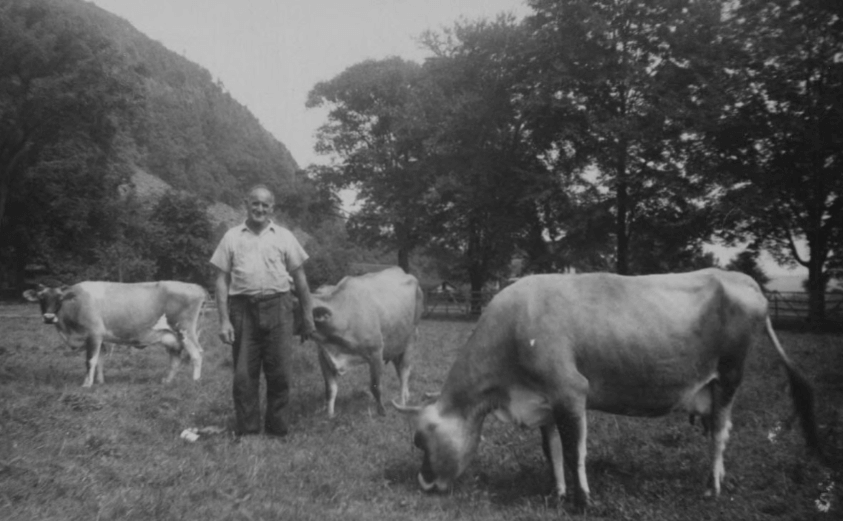
Kateri Lodge
Some time before1960, the barn underwent a transformation into a meeting place for campers. The sisters christened the old barn with the name Kateri Lodge to honor Kateri Tekakwitha, the first indigenous American person named a saint. Over time its purpose evolved further as it became a space utilized by non-profit organizations. Over time, alterations changed the barn’s appearance.
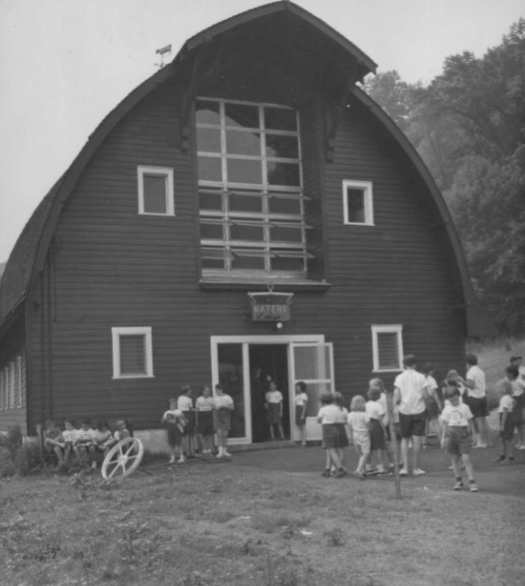
The front of Kateri Lodge was modified: the original hayloft doors were replaced with a substantial window, while a covered entrance took the place of the barn door. Even the side windows underwent replacement, although they retained the design of the original sashes.
The barn’s exterior, once adorned with fir/hemlock siding, now boasts vibrant red siding that replaced the original material. Evidence suggests that a Gothic cupola featuring a cow weathervane was once a prominent feature atop the structure. Unfortunately, during a re-roofing project, this iconic cupola seems to have disappeared. Only traces of the weathervane’s top are visible in a 1960 photo of campers in front of the barn.
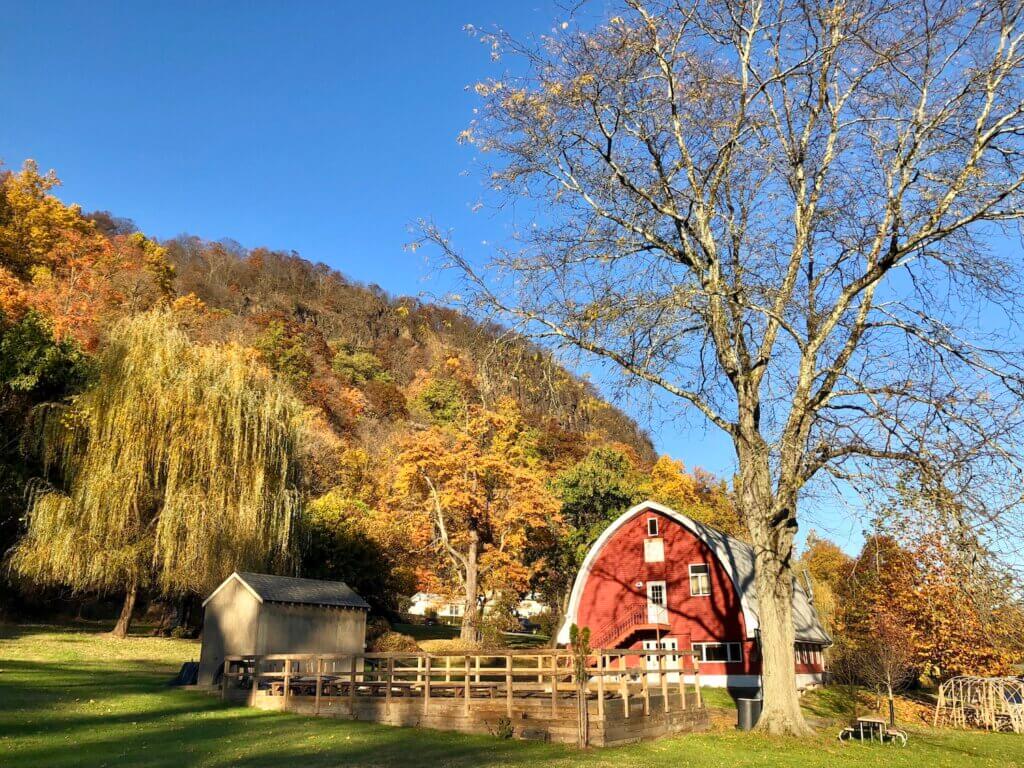
Kateri Lodge Today
Despite these alterations, the interior of Kateri Lodge continues to display its original allure. The lofty second floor showcases exposed wooden arches forming an intricate and mesmerizing pattern, reminiscent of its initial construction.
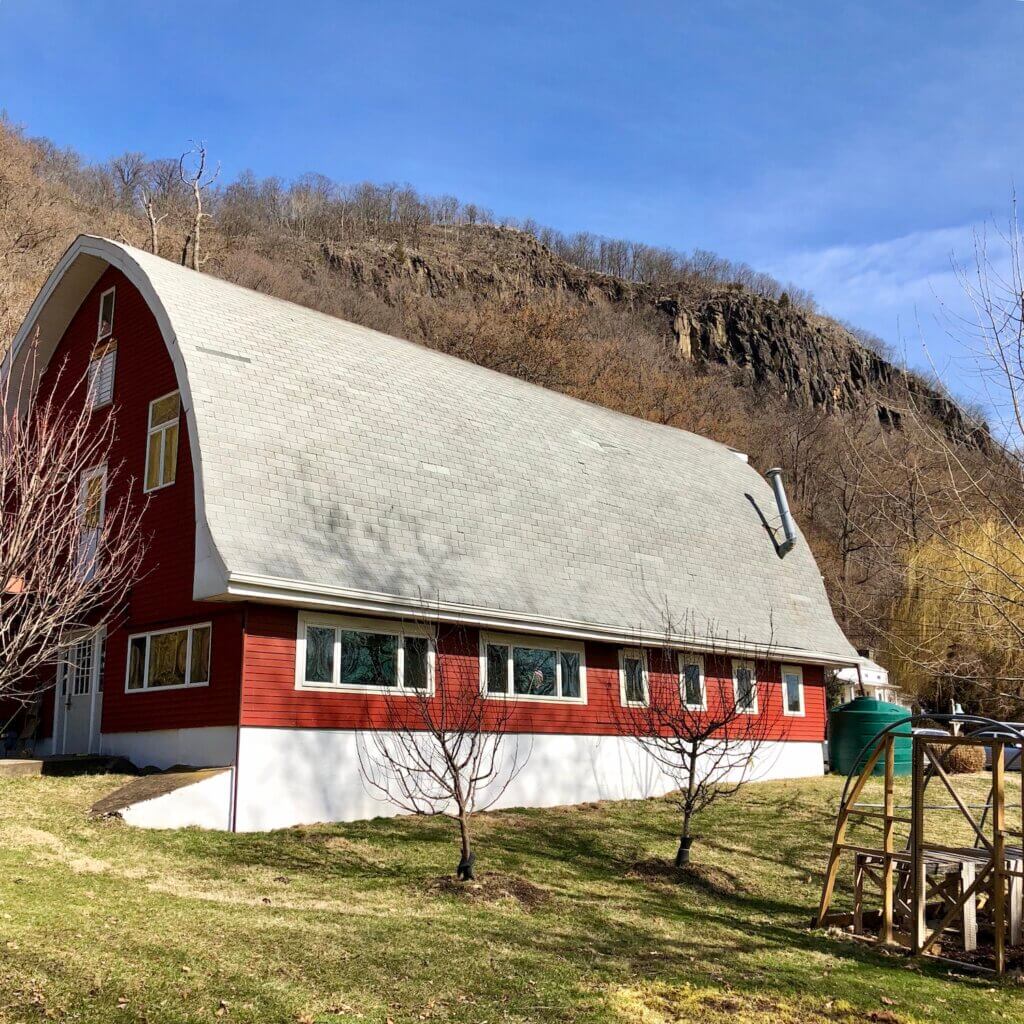
Today, Kateri Lodge stands as the largest meeting hall at Marydell, serving as a hub for various nonprofit groups, including educational programs and artistic endeavors. Its multifaceted utility as a space for learning, art, and community gatherings further solidifies its legacy beyond its original agricultural purpose.
Mike Hays is a 38-year resident of the Nyacks. He worked for McGraw-Hill Education in New York City for many years. Hays serves as President of the Historical Society of the Nyacks, and Vice-President of the Edward Hopper House Museum & Study Center. Married to Bernie Richey, he enjoys cycling and winters in Florida. You can follow him on Instagram as UpperNyackMike.
Editor’s note: This article is sponsored by Sun River Health and Ellis Sotheby’s International Realty. Sun River Health is a network of 43 Federally Qualified Health Centers (FQHCs) providing primary, dental, pediatric, OB-GYN, and behavioral health care to over 245,000 patients annually. Ellis Sotheby’s International Realty is the lower Hudson Valley’s Leader in Luxury. Located in the charming Hudson River village of Nyack, approximately 22 miles from New York City. Our agents are passionate about listing and selling extraordinary properties in the Lower Hudson Valley, including Rockland and Orange Counties, New York.


